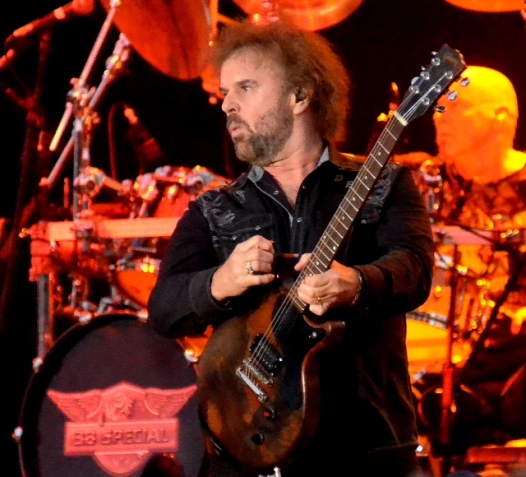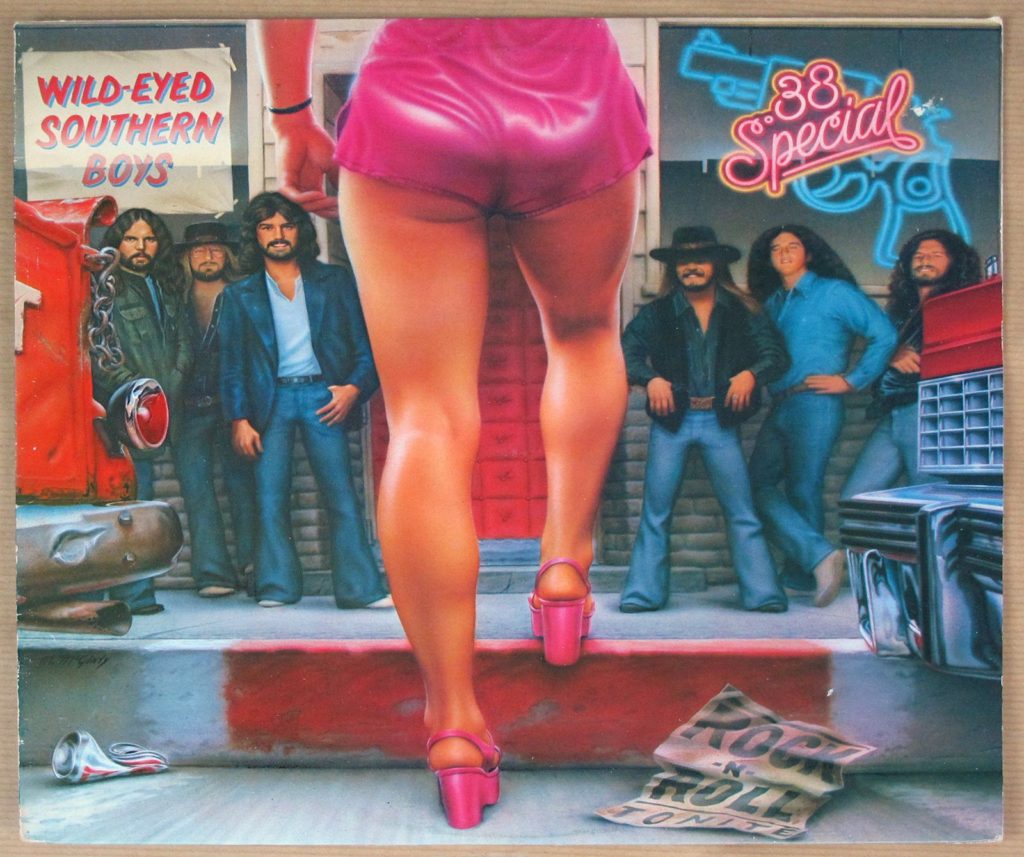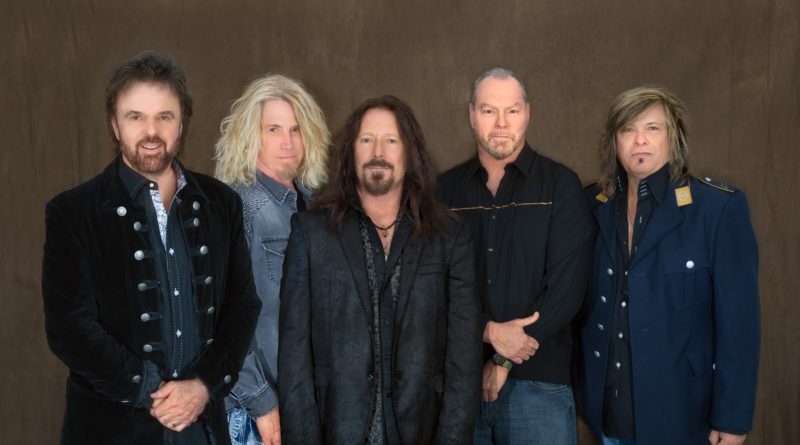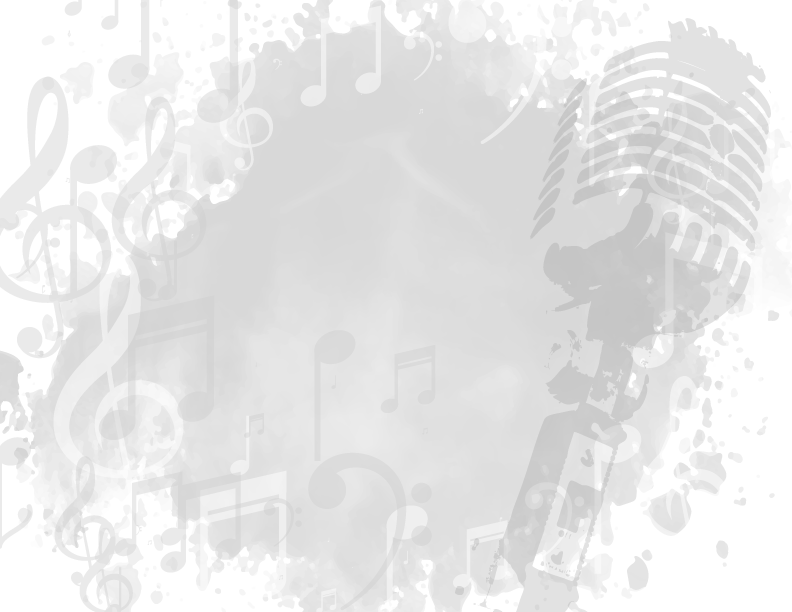(Still) Rockin’ Into The Night: A Conversation with 38 Special’s Don Barnes
It was 1981. Despite having three albums under its belt, a young southern rock band by the name of 38 Special was, at best, a menial blip on the radar of rock radio.
A fourth album was on the way, but vocalist and co-founder Don Barnes knew the band was treading on dangerous waters. Failure to make a connection with the record buying public yet again could potentially be disastrous. Worst case scenario, the end of the band.
By the time Barner and the band’s manager approached the powerfully influential Los Angeles radio station KLOS with the raw acetate record that would eventually be known as “Wild Eyed Southern Boys,” the vocalist’s nerves were frayed.
“This was a big trend setter radio station,” Barnes recalled during a recent phone interview with ListenIowa. “We went into the program director’s office in this big high-rise, steel place. They put the acetate on the turntable, and we were really nervous. We needed this really bad.”
As fate would have it, the fourth time was the charm.
“The program director put it on and it’s (sings the staccato descending guitar riff to “Hold On Loosely”). When it got to the chorus, he went, ‘Oh, yeah. We’ll play that.’ ” (laughs) It was like a huge weight off our shoulders. We knew if KLOS was going to play it, then 80 other stations across the country were going to play it. It was a pivotal moment.”
Momentum now on their side, the band didn’t look back over the better part of six years, crafting hook-filled songs that remain staples on classic rock radio to this day, including “Rockin’ Into the Night,” “Hold On Loosely,” “Caught Up in You,” “If I’d Been the One,” “Back Where You Belong,” “Wild-Eyed Southern Boys,” “Fantasy Girl,” and “Teacher Teacher.”
Despite multiple platinum albums lining the walls, and the hard-earned spoils of success having been partaken in, Barnes, now the sole remaining original member of 38 Special, isn’t still playing 100 shows annually for the “things.” Forty-five years of 38 Special have given Barnes an appreciation of the struggle, a perspective of the world, and a realization of his place in it.
“It’s those instant reactions of the people who come to our shows, the tears in the eyes from reminders of someone they may have lost, or a special time in their life,” Barnes said. “People are singing along. Let me tell you, it’s the greatest job to bring that kind of joy to people every night.”
Barnes, along with keyboardist/vocalist Bobby Capps, drummer Gary Moffatt, bassist Barry Dunaway, and guitarist Jerry Riggs, will return to Iowa on Saturday, June 22, where they will perform in Burlington at an outdoor concert along with openers Tucker Beathard and Craig Gerdes. Tickets are available at ticketmaster.com.
Barnes took time from his busy schedule to speak with ListenIowa recently about the lean years of 38 Special, the big break, and the secret to vocal longevity.
ListenIowa: It’s been 45 years since 38 Special formed. Did you ever imagine that you and the band would be around this long?
Don Barnes: No. But we wanted it so bad. [Playing music for a living] isn’t highly recommended to the younger guys and teenagers, though — only if you absolutely have to do it. (laughs) It didn’t happen overnight. We had a lot of failure, and you have to be able to accept a lot of failure and still be able to believe in yourself.
LI: Florida was a hotbed for music when you were coming up.
DB: We came from Jacksonville, Florida, where there were four Navy bases. All the southern rock guys from Ronnie Van Zant to Greg and Duane Allman to Tom Petty, they all played sailors’ clubs from the time they were 15, playing cover songs of all the hits of the day and made $100 a week. That was big money then. So we would play these clubs, and you learned the structures of these songs, and the patterns. It is a craft. A lot of people don’t like to talk about it as a craft, but it is. There’s an A section, a B section, a ramp that goes to the chorus, and a bridge, guitar solos. You start seeing where the payoff is, the thing that sticks out and really draws the listener in. You do this for years and learn the fundamentals of songwriting, then you get cocky and think you can write your own (laughs). But that’s when you go starve for 10 years. You’re riding high in the sailors’ club, but nobody cares whether you live or die when you’re doing original songs. You have to suffer and pay the dues.
LI: You were fortunate that your label, A&M Records, gave you the time to develop, find out what works and what doesn’t, and hone your sound. That doesn’t happen much anymore.
DB: People think that “Hold On Loosely” was on our first album, but it was actually on our fourth album. We went through a lot of struggle and unemployment before we finally got the formula right. We were kind of copying what had come before us, but Ronnie Van Zant, who had been a mentor for us, said, “Don’t try to be a clone of something that’s already been done. Find what makes your heart sing and find what influenced you.” So we found that we weren’t just fans of southern blues. We were big fans of the British Invasion, The Animals and The Beatles, that sort of stuff with more melody and structures and good bridges and choruses. We just set about changing everything and putting our influences in it and found a simple formula that we call “melody and muscle.” It’s got that muscular guitar in your face with a good melody on top. Once we found it, we figured, if it ain’t broke, don’t fix it.
LI: Before you found that formula, were the struggles caused by a fear stepping out and taking what was yours, or was it simply not knowing your true identity yet?
DB: Maybe a little bit of both. There’s an element of desperation to it. When I hear “Rockin’ Into The Night,” I hear that guy who is so hungry. People think it was someone who was passionate, but actually it was someone who was desperate. We had to have it. We had failed several times. We had a two-album deal. When you get a record deal, people think you’ve made it. Well, all it does is give you a chance to play in the big leagues. You have to show them what you can do. They give you a contract, but you can just as easily be dropped and have to go back home.
LI: Not to mention, that money that the record company fronts you, you have to pay that back.
DB: We recouped every dime, you bet. (laughs) You’re behind the eight-ball. We had two albums that failed miserably. It was a tragic time, too, with the plane crash of Lynyrd Skynyrd and us losing our mentor and the other guys. Somewhere in the A&M board room, they just didn’t have the heart to drop us after all that. Donnie (Van Zant) had lost his brother and family and everything. But they were going to give us one more chance. We were desperate. We were going to change up the formula, do something different. What we were doing before wasn’t working, so we threw it all out and revamped it.
LI: How much was your label involved in the process?
DB: They had an A&R department who would help you along, coach you, give you some advice here and there. Nowadays, that department is pretty much gone. They pretty much throw it up against the wall, and if it sticks, they’ll spend some money on it. We were lucky that A&M was a musician’s record company, with Herb Alpert, and because he knew the frustrations of musicians and how it can be, was able to form a company that was very artist-oriented. He told his staff to stay with people (performers), don’t just kick them out the door.
LI: You scrapped everything and started fresh but with the knowledge that it had to work this time or the band might be done. At what point did you see things finally coming together?
DB: “Rockin’ Into The Night,” in 1979, was the totally different formula, with the kind of chant for a chorus. Donnie had asked me if I wanted to sing it because he wasn’t feeling it. He understood it, but just didn’t get how it was supposed to go. So I stepped up and did it. We remain friends today. People ask if singing together was some kind of competition. But it didn’t matter to us who carried the ball, as long as we won as a team. We were boyhood friends and wanted it really bad. That song cracked the door on radio a little bit, and then the next album, radio was inviting us in a little more, but we had to have it. Thankfully we did, and it busted the door down.
LI: And then you guys turned into a hit-making machine. The roll started and didn’t stop for a number years. Did you enjoy that ride?
DB: When everything is happening around you, you’re in the eye of the hurricane and you don’t really have the time to stop and look and around and realize what is happening. You are pushing to be five steps ahead of yourself, writing songs for the next album, all these things. You’re so busy that it’s hard to enjoy it. I wish I could do it again and sit back and enjoy it.
LI: 38 Special has a sound and palm muting guitar style that is immediately recognizable. How much thought went into that?
DB: When you’re sitting on a living room couch and hammering out and trying to come up with a melody, you’re palm muting because the easiest thing to do is play eighth notes to get some action going on there. It’s pretty much piano and guitar, though. I’m a banger on piano. “If I’d Been The One” came off of a piano, and then I transposed it to guitar, and we made it kind of a high, lonesome sound. When it’s just you, you have tunnel vision, and you don’t know if it has any merit to it. So I’d tell Jim Peterik (outside songwriter) or Jeff Carlisi (38 Special guitarist from 1974-1996) that I had a little part of a verse, and it takes just one other person to go, “You know, that’s not too bad. We can take this and do this and this.” Suddenly, you’re credible. (laughs)
LI: Were there any songs from that era that you felt could have been big but for whatever reason just didn’t get the push they needed?
DB: Yeah, you’re always appealing to the record company not to give up on you after the first two singles. “Strength In Numbers” had a lot of songs. I wanted to have all those songs. “Once In A Lifetime” was a good song. But you know, the record execs would come out, and we’d talk, and we’d have a party, and they’d tell us they got a lot of good feedback on “Like No Other Night,” then backed it up with “Somebody Like You.” I would tell them there’s a lot more on there, because they’re looking at a lot out there in other artists, too. You want them to pay attention and stay on your project.
LI: Your voice is integral to the 38 Special sound as well. How have you managed to keep it in such good shape all these years?
DB: After the show, people tell me they can’t believe I’m even talking after a 90-minute show. I learned to sing correctly back in seventh grade. Greg Allman told me to sing like someone is about to punch you in the stomach. It hardens up your diaphragm, and it keeps a lot of the energy down there, and you don’t blow a lot of the air out of your larynx, which is something that can be worn out. You hear a lot of guys who sang from their face over the years, and did it well, but they’re burnt out today because there’s too much air pushing on it (larynx). It’s worn out. So it’s a little bit of a Zen thing. You center it all the way down there. Like, I know on “Fantasy Girl,” there are parts coming up that are going to be high (sings lyric “I see clearly a vision…” ), and I actually don’t push. I relax more and put it down there in my gut. I’ll also tell you a little secret. There’s this product called Entertainer’s Secret. It’s online. I thought it was a scam thing. A bus driver who used to be a DJ told me to try it. What it does is, as you spray, you breathe in and it gets right on the vocal cords and moisturizes them to simulate natural body fluids. So I’ll have my mug of tea between songs, and I have the little bottles of it taped to the side of the mug. I’ll just give it a little spray, and go out and do another song.
LI: They should be a sponsor.
DB: Oh, yeah. I should get an endorsement. (laughs). I’ve given it to Tommy Shaw (Styx), and Kevin Cronin (REO Speedwagon) and friends of mine. It’s not like a miracle, but it’s like steam; it rejuvenates and revitalizes you.
LI: You’ll be coming back to Iowa next month, where you continue to have a good fan base. What can we expect from the 2019 version of 38 Special?
DB: I remember the last time we came out, it seemed like everybody in town was there! (laughs) We’ll take you for a ride. We’ve been very fortunate to have 15 or 16 Top 40 songs, so we start out big, put a medley together, and make sure people hear their favorite songs, whether they were in movies, like “Back To Paradise” from “Revenge of the Nerds,” or whatever. We unfold that history and take them for that ride. It’s like I say at the very end of the show, “Never lose your rock n’ roll heart; it’s what keeps you young.”


